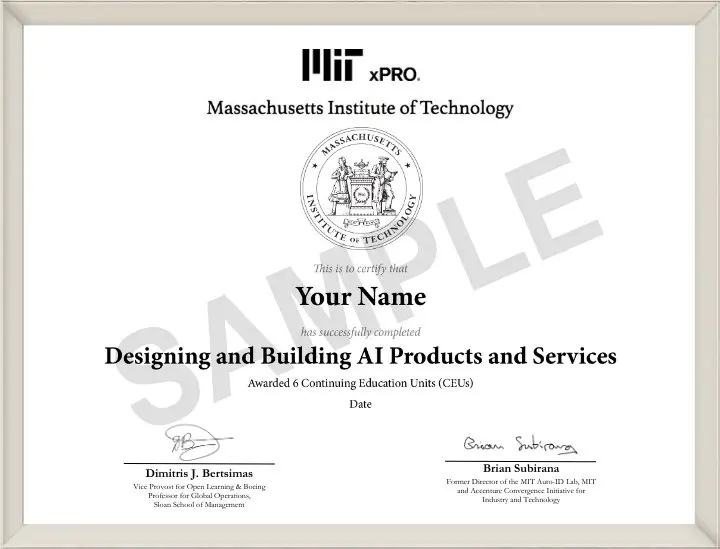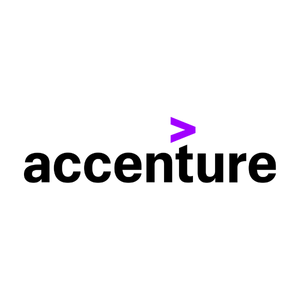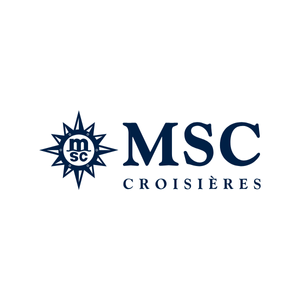
Designing and Building AI Products and Services
Uncover potential applications of AI for growth
Program Overview: Designing and Building AI Products and Services
Designing and Building AI Products and Services is a 10-week online program from MIT xPRO designed for professionals and entrepreneurs working in the field of artificial intelligence (AI). The program helps you understand technology and business design principles and applications of AI across various industries and organizational functions. The goal is for you to create an AI-based product proposal, which can be presented to your internal stakeholders or investors.
The curriculum covers the stages involved in designing AI-based products, along with the fundamentals of machine learning and deep learning algorithms, and applies these insights to solving practical problems. You will also be exposed to the latest industry trends in the Agents and Retrieval-Augmented Generation (RAG) through a live session with program faculty Dr. Brian Subirana, gaining perspective on the latest directions of AI product design.
Why AI — and Why Now?
Deploying AI enables automation, sharper data insights, and stronger customer engagement— key advantages in today’s competitive market. With AI applications spanning operations to strategy, demand for talent is soaring: LinkedIn’s Jobs on the Rise report ranks AI engineer and AI consultant as the fastest-growing roles, with 74% annual growth. McKinsey further notes that embedding AI across product development accelerates workflows, automates tasks, and speeds up prototyping, thus reducing time-to-market and driving faster innovation. Together, these shifts highlight the urgency for organizations to design, manage, and execute clear AI adoption road maps.
50%
72%
$826.7
Who Is the Designing and Building AI Products and Services Program For?
This 10-week course is ideal for you if you are a technical product leader, technology professional, technology consultant, or entrepreneur who wants to enhance your understanding of AI technology fundamentals and tools, and explore various design processes involved in AI-powered products. Knowledge of calculus, linear algebra, statistics, and probabilities is beneficial, along with basic Python experience. The program is ideal for:
Technical Product Managers & Leaders in charge of machine learning and AI-based products in their organizations who are looking to add value to their organization by leveraging the latest in AI technologies.
Technology Professionals who design and develop technology solutions aligned to organizations’ needs and are looking to broaden their understanding of developing AI-based solutions using machine learning algorithms.
Technology Consultants who focus on the analysis, design, and development of technology solutions for clients.
Founders of AI Startups that build AI-driven applications and want to learn a proven framework for developing viable AI products and network with other technologists.
UI/UX Designers & Leaders responsible for managing user experience of AI-based applications.
AI and Technology Enthusiasts, including aspiring AI product makers, technology professionals, and curious learners, who want to stay ahead of the latest developments in AI-product design, gen AI techniques (including RAG, chain-of-thought, and tool integration), and human-centered AI systems.
Note: The content of this program assumes previous knowledge of calculus, linear algebra, statistics, and probability. Basic Python experience will also be beneficial.
Hear From Past Participants
Key Takeaways
The Designing and Building AI Products and Services program is designed to equip you with the skills to broaden your understanding of AI-based solutions and Gen AI.
The program will help you to:
Categorize Different Machine Learning Algorithms
Classify and describe various machine-learning algorithms, such as supervised, unsupervised, and reinforcement learning, highlighting their unique characteristics and applications.
Different Convolutional/Deep/Recurrent Neural Network Algorithms
Distinguish between different types of neural networks, including convolutional neural networks (CNNs), deep neural networks (DNNs), and recurrent neural networks (RNNs), to explain their structures, functionalities, and use cases.
Categorize Generative AI technologies
Understand the architectures underlying transformer and other generative AI approaches to be able to critically assess when to use them in a given business context.
Evaluate the Four Stages of the AI Design Process Model
Critically assess the four key stages of the AI design process, discussing their significance, challenges, and best practices for successful implementation.
Enhance AI Agents with Advanced Generative AI Techniques Explain how RAG, chain-of-thought prompting, and tool integration extend the capabilities of transformers, enabling AI agents to reason more effectively, access external knowledge, and perform complex tasks across platforms.
Explain How Humans and Computers Interact in AI
Analyze the interaction between humans and computers in AI systems, focusing on how human input, oversight, and collaboration enhance AI performance and decision making.
Describe How Different Types of Superminds Address Various Problems
Illustrate the concept of superminds—groups of individuals and machines working together—and how different configurations of superminds can effectively tackle diverse problems.
Predict AI Opportunities in Digital Business Processes
Identify and forecast potential AI-driven opportunities within digital business processes, emphasizing areas where AI can drive innovation, efficiency, and competitive advantage.
Build a Business Case for Initiating an AI Application
Develop a comprehensive business case for the initiation of an AI application, including cost-benefit analysis, strategic alignment, risk assessment, and an implementation road map.
Program Highlights
Earn a certificate and 6 Continuing Education Units (CEUs) from MIT xPRO
Gain insights from faculty on retrieval-augmented generation (RAG), agentic AI, and future AI trends in a live session and in the Generative AI module, which also covers chain-of-thought prompting and AI tool integration
Acquire market-ready skills for evaluating AI solution opportunities and gauging the appropriate technologies for your organization
Develop an AI project proposal to present to internal stakeholders or investors
Advance your knowledge through crowdsourcing, demos, and design-support activities
What You Will Learn in the Designing and Building AI Products and Services Program?
You will gain access to the learning platform from the program start date and have the opportunity to familiarize yourself with the classroom environment and prepare for the program ahead.
Get acquainted with the stages involved in designing an AI-based product with a focus on specifics, including the cost metrics and technical requirements of an AI software development plan.
Identify various machine learning algorithms and study the different approaches, including Bayesian and regression models. Learn about unsupervised and semi-supervised methods of machine learning algorithms, and run and analyze the results from various machine learning algorithms. Additionally, Gain insights to apply AI to uncover genetic disease predispositions.
Inclusion of Mini lessons
Investigate classifiers like linear models, decision boundaries, and the impact of feature engineering.
Grasp the "Train, Validate, Test" methodology to avoid the pitfalls of training error.
Understand Bayesian classifiers through a five-step prediction method.
Compare logistic regression with support vector machines (SVMs) for binary classification
Delve into unsupervised clustering techniques, including k-means for natural data grouping.
Building on the knowledge of machine learning fundamentals gained in Week 3, explore the basics of deep learning. The topics include neural networks, artificial neurons, and simulation of complex networks. Furthermore, discover Dr. Regina Barzilay's work on using AI to detect breast cancer, and understand Tempo, an AI detection application leveraging multimodality.
Details from Mini lessons
Learn about artificial neurons and gradient descent, and understand the structure and function of artificial neural networks. Gain insights into multi-layer perceptrons (MLPs) and prepare to implement both single- and multi-layer perceptrons.
Explore autoencoders, including their construction and implementation. Implement convolutional neural networks (CNNs) and get ready to run CNN applications. Learn about recurrent neural networks (RNNs) and their use in handling sequential data for tasks including speech recognition and language translation.
Identify superhuman intelligence used in an AI product. Compare and contrast the advantages and disadvantages of using an AI technology. You will also, learn about the implementation and design of AI, including creating avatars through image creation and voice cloning.
Understand the first stage of transformers in natural language processing (NLP) architecture that converts written text into tokens for processing. Study the second stage of transformers in which where tokens are converted into vectors that capture the meaning of text. Explore the possibilities and limitations of Generative AI when decoders are added to transformer architecture.
Analyze a case study on AI limitations in gynecological decision-making. Discuss errors in image generation and language processing, and learn technical approaches to address these limitations.
Explore AI applications, from optimizing NLP embeddings and prompt engineering to evaluating benchmarks, improving business processes, and assessing AI’s role in expert decision making. Learn RAG and chain-of-thought prompting, and apply them in an interactive chatbot assignment on designing a RAG system.
Use the resources provided in this module to understand the techniques, application areas, benefits, and drawbacks of HCI. Learn to define an appropriate level of machine involvement in interactions with humans and computers. Seek ways to use AI to your advantage.
Get an introduction to the concept of superminds, and compare and contrast the different types of superminds. Analyze how humans and machines can work together to surpass the sum of their parts. Apply cognitive processes to various organizations and community problems.
Learn how AI and generative adversarial networks (GANs) can be used to generate fake images and videos from real data. Assess the technical, social, and economic impact of AI technologies.
Implement the Lawler Model to define an AI problem. Design and construct a summary of an AI product or process using learnings from the previous modules of the program.
Live Session
Agentic AI, RAG, and the Future of Scalable AI
In this live session, Dr. Brian Subirana explores AI agents including, Retrieval-Augmented Generation (RAG) techniques, the Model Context Protocol (MCP), and the future of scalable AI design. Using real-world examples, including Open Source LLMs, LangChain and Amazon case studies, the session covers technical best practices, business deployment challenges, and emerging trends shaping intelligent AI systems.
Note: The live session is subject to change. Agentic AI and RAG are addressed through the faculty-led session and complement the core module instructions.
Meet the Faculty

Former Director, MIT Auto-ID lab
Brian Subirana has taught at MIT Sloan and the MIT School of Engineering and he is also on the faculty of Harvard University. His research centers on IoT and AI, and focuses o...

Senior Research Scientist, MIT; Associate Director, MIT Media Lab
Andrew Lippman heads the Viral Communications research group at MIT Media Lab. His work has ranged from digital video and entertainment to graphical interfaces, networking and...

X-Career Development Assistant Professor, MIT Electrical Engineering and Computer Science, joint with Mechanical Engineering
Stefanie Mueller is the head of the Human Computer Interaction Communities of Research (HCI CoR) at MIT CSAIL. In her research, she develops novel hardware and software system...

Clarence J. Lebel Professor, Electrical Engineering and Computer Science
Duane Boning is affiliated with the MIT Microsystems Technology Laboratories and serves as Associate Director for Computation and CAD (computer-aided design). He is also the E...

Managing Director, MIT Machine Intelligence for Manufacturing and Operations (MIMO)
Bruce Lawler is a technology entrepreneur and an executive leader. He has developed several applications across platforms such as mobile, SaaS, AI and video distribution netwo...

Patrick J. McGovern Professor of Management, MIT Sloan Founding Director, MIT Center for Collective Intelligence
Thomas W. Malone is the Professor of Information Technology and a Professor of Work and Organizational Studies at MIT. In his researches over the years, Malone rightly predict...
Guest Speakers

Chief Executive Officer, Voomer
David Anderton-Yang heads the startup Voomer, which helps users build confidence in video interviews. The service uses an AI-enhanced video analysis technique to give users fe...

Research Assistant, MIT Media Lab
Aruna Sankaranarayanan works at the Viral Communications group at the MIT Media Lab. Her research looks at the ways in which deep learning and computer vision techniques can m...

Certificate
Get recognized! Upon successful completion of this program, you receive 6 Continuing Education Units (CEUs), a globally recognized measure of professional learning that reflects compliance with international quality standards, and a certificate of completion from MIT xPRO.
This program is graded as a pass or fail; participants must receive 75 percent to pass and obtain the certificate of completion.
Note: After successful completion of program, your verified digital certificate will be emailed, at no additional cost, in the name you used when registering for the program. All certificate images are for illustrative purposes only and may be subject to change at the discretion of MIT.
AI Strategy and Product Innovation
Registration for this program is done through Emeritus. You can contact us at learner.success@emeritus.org
FAQs
The Designing and Building AI Products and Services course from MIT xPRO is an online course that focuses on AI product design, combining course content on AI systems, AI algorithms, and AI models with practical frameworks. It helps professionals apply user research, design workflows, and hands-on projects to build AI-powered products that address real-world problems.
This AI product design course from MIT xPRO is valuable for professionals seeking a clear understanding of how to design, evaluate, and build AI systems effectively. The course emphasizes real-world applications, interactive exercises, and hands-on tools, helping participants gain AI skills that create a competitive edge in product, design, and technology roles.
The best program depends on your goals. The Designing and Building AI Products and Services course from MIT xPRO stands out for its focus on AI for product designers, UX design, information architecture, and creating prototypes that integrate human creativity with intelligent systems. The curriculum blends theory with real-world problems and applied learning.
This online course is well-suited for product designers, technologists, and busy professionals who want to develop a solid understanding of AI tools, AI projects, and design challenges. If you are responsible for user interfaces, user testing, or shaping AI-powered data science solutions, this training provides practical, career-relevant skills.
The fee for MIT xPRO’s Designing and Building AI Products and Services course is listed on the program page. The cost includes access to course materials, online learning resources, faculty guidance, and interactive exercises. Additional costs, if any, are outlined during enrollment.
Building AI-powered products requires understanding AI models, AI algorithms, and ethical considerations, along with strong user research and design workflows. The Designing and Building AI Products and Services training program from MIT xPRO supports participants through hands-on projects, applied frameworks, and guidance from industry experts, helping them move from concept to implementation.
Participants develop new skills in AI product design, UX design, user interfaces, information architecture, and address ethical concerns in AI. The course strengthens practical abilities such as creating prototypes, evaluating AI systems, and applying mental models to solve design challenges and repetitive tasks effectively.
Choosing the right AI product design course depends on your career stage and learning goals. MIT xPRO’s Designing and Building AI Products and Services online course offers structured course materials, hands-on projects, and a collaborative learning experience, making it suitable for professionals seeking applied, industry-aligned training.
This program from MIT xPRO combines applied learning, hands-on projects, and expert instruction to help participants successfully complete an AI product proposal. The course certificate emphasizes real-world applications, with an emphasis on ethical, human-centered AI design, supporting long-term career opportunities and professional growth.
How do I know if this program is right for me?
After reviewing the information on the program landing page, we recommend you submit the short form above to gain access to the program brochure, which includes more in-depth information. If you still have questions on whether this program is a good fit for you, please email learner.success@emeritus.org, and a dedicated program advisor will follow-up with you very shortly.
Are there any prerequisites for this program?
Some programs do have prerequisites, particularly the more technical ones. This information will be noted on the program landing page, as well as in the program brochure. If you are uncertain about program prerequisites and your capabilities, please email us at the ID mentioned above.
Note that, unless otherwise stated on the program web page, all programs are taught in English and proficiency in English is required.
What is the typical class profile?
More than 50 percent of our participants are from outside the United States. Class profiles vary from one cohort to the next, but, generally, our online certificates draw a highly diverse audience in terms of professional experience, industry, and geography — leading to a very rich peer learning and networking experience.
What other dates will this program be offered in the future?
Check back to this program web page or email us to inquire if future program dates or the timeline for future offerings have been confirmed yet.
What makes this MIT xPRO AI course unique?
The MIT xPRO Designing and Building AI Products and Services program equips you with frameworks and strategies to elevate your product and solution design. The program provides market-ready skills with insights from world-renowned MIT faculty, making it one of the best AI courses online to enroll in.
How much time is required each week?
Each program includes an estimated learner effort per week. This is referenced at the top of the program landing page under the Duration section, as well as in the program brochure, which you can obtain by submitting the short form at the top of this web page.
How will my time be spent?
We have designed this program to fit into your current working life as efficiently as possible. Time will be spent among a variety of activities including:
Engaging with recorded video lectures from faculty
Attending webinars and office hours, as per the specific program schedule
Reading or engaging with examples of core topics
Completing knowledge checks/quizzes and required activities
Engaging in moderated discussion groups with your peers
Completing your final project, if required
The program is designed to be highly interactive while also allowing time for self-reflection and to demonstrate an understanding of the core topics through various active learning exercises. Please email us if you need further clarification on program activities.
What is it like to learn online with the learning collaborator, Emeritus?
More than 300,000 learners across 200 countries have chosen to advance their skills with Emeritus and its educational learning partners. In fact, 90 percent of the respondents of a recent survey across all our programs said that their learning outcomes were met or exceeded.
All the contents of the course would be made available to students at the commencement of the course. However, to ensure the program delivers the desired learning outcomes the students may appoint Emeritus to manage the delivery of the program in a cohort-based manner the cost of which is already included in the overall course fee of the course.
A dedicated program support team is available 24/5 (Monday to Friday) to answer questions about the learning platform, technical issues, or anything else that may affect your learning experience.
How do I interact with other program participants?
Peer learning adds substantially to the overall learning experience and is an important part of the program. You can connect and communicate with other participants through our learning platform.
What is the relationship between Emeritus and MIT xPRO?
Emeritus and MIT xPRO collaborate to create and deliver educational programs. None of these programs are Title IV-eligible.
Who is this program for?
This program is ideal for anyone aspiring to become an AI-driven product manager/leader, founders of AI startups, technology professionals, and UI/UX designers interested in building scalable AI products. However, prior knowledge of calculus, linear algebra, statistics, and probability is required, and basic Python experience is recommended.
How hands-on is the program?
The learning journey includes basic coding exercises, problem-solving workbooks, and a capstone project focused on creating an AI design process model. The immersive curriculum is ideal for those who are seeking practical AI training in product and solution design.
What kind of AI applications are covered in this AI product manager program?
The program explores the latest in AI technologies — from language processing and image generation to predictive modeling and human–computer interaction (HCI). Designed by world-renowned experts on artificial intelligence from MIT, the program is a great fit for professionals who are looking to learn about AI with an application-focused curriculum.
What are the requirements to earn the certificate?
Each program includes an estimated learner effort per week, so you can gauge what will be required before you enroll. This is referenced at the top of the program landing page under the Duration section, as well as in the program brochure, which you can obtain by submitting the short form at the top of this web page. All programs are designed to fit into your working life.
This program is scored as a pass or no-pass; participants must complete the required activities to pass and obtain the certificate of completion. Some programs include a final project submission or other assignments to obtain passing status. This information will be noted in the program brochure. Please email us if you need further clarification on any specific program requirements.
What type of certificate will I receive?
Upon successful completion of the program, you will receive a smart digital certificate. The smart digital certificate can be shared with friends, family, schools, or potential employers. You can use it on your cover letter, resume, and/or display it on your LinkedIn profile.The digital certificate will be sent approximately two weeks after the program, once grading is complete.
Can I get the hard copy of the certificate?
No, only verified digital certificates will be issued upon successful completion. This allows you to share your credentials on social platforms such as LinkedIn, Facebook, and Twitter.
Do I receive alumni status after completing this program?
No, there is no alumni status granted for this program. In some cases, there are credits that count toward a higher level of certification. This information will be clearly noted in the program brochure.
How long will I have access to the learning materials?
You will have access to the online learning platform and all the videos and program materials for 24 months following the program start date. Access to the learning platform is restricted to registered participants per the terms of agreement.
Does this MIT xPRO artificial intelligence program provide an AI certification?
The Designing and Building AI Products and Services program is a certificate program, and it does not provide any AI certifications. However, earning a certificate from MIT xPRO in AI product and solution design demonstrates both strategic insight and technical proficiency. It will help display your ability to lead AI product initiatives and apply advanced AI concepts to solve business challenges.
What equipment or technical requirements are there for this program?
Participants will need the latest version of their preferred browser to access the learning platform. In addition, Microsoft Office and a PDF viewer are required to access documents, spreadsheets, presentations, PDF files, and transcripts.
Do I need to be online to access the program content?
Yes, the learning platform is accessed via the internet, and video content is not available for download. However, you can download files of video transcripts, assignment templates, readings, etc. For maximum flexibility, you can access program content from a desktop, laptop, tablet, or mobile device.
Video lectures must be streamed via the internet, and any livestream webinars and office hours will require an internet connection. However, these sessions are always recorded, so you may view them later.
Can I still register if the registration deadline has passed?
Yes, you can register up until seven days past the published start date of the program without missing any of the core program material or learnings.
What is the program fee, and what forms of payment do you accept?
The program fee is noted at the top of this program web page and usually referenced in the program brochure as well.
Flexible payment options are available (see details below as well as at the top of this program web page next to FEE).
Tuition assistance is available for participants who qualify. Please email learner.success@emeritus.org.
What if I don’t have a credit card? Is there another method of payment accepted?
Yes, you can do the bank remittance in the program currency via wire transfer or debit card. Please contact your program advisor, or email us for details.
I was not able to use the discount code provided. Can you help?
Yes! Please email us with the details of the program you are interested in, and we will assist you.
How can I obtain an invoice for payment?
Please email us your invoicing requirements and the specific program you’re interested in enrolling in.
Is there an option to make flexible payments for this program?
Yes, the flexible payment option allows a participant to pay the program fee in installments. This option is made available on the payment page and should be selected before submitting the payment.
How can I obtain a W9 form?
Please connect with us via email for assistance.
Who will be collecting the payment for the program?
Emeritus collects all program payments, provides learner enrollment and program support, and manages learning platform services.
Are there any restrictions on the types of funding that can be used to pay for the program?
Program fees for Emeritus programs with MIT xPRO may not be paid for with (a) funds from the GI Bill, the Post-9/11 Educational Assistance Act of 2008, or similar types of military education funding benefits or (b) Title IV financial aid funds.
What is the program refund and deferral policy?
For the program refund and deferral policy, please click the link here.
Financing Options
Climb Credit*
We offer financing options with our partner, Climb Credit*. Click here to learn more.
Flexible Payment Options For All
Flexible payment options allow you to pay the program fee in installments. Click here to see payment schedule.
Didn't find what you were looking for? Write to us at learner.success@emeritus.org or Schedule a call with one of our Academic Advisors or call us at +1 401 443 9591 (US) / + 44 189 236 2347 (UK) / +65 3129 7174 (SG)
Flexible payment options available.
Starts On











